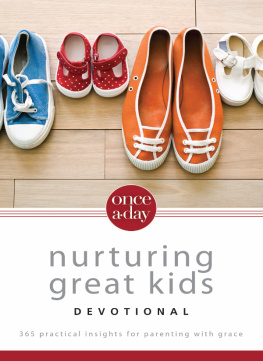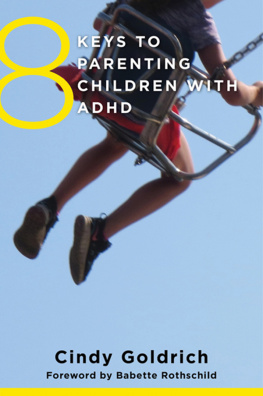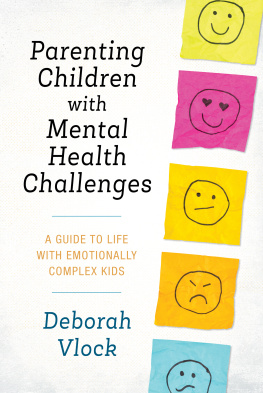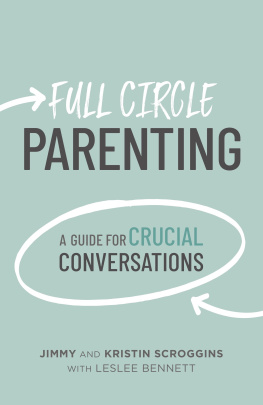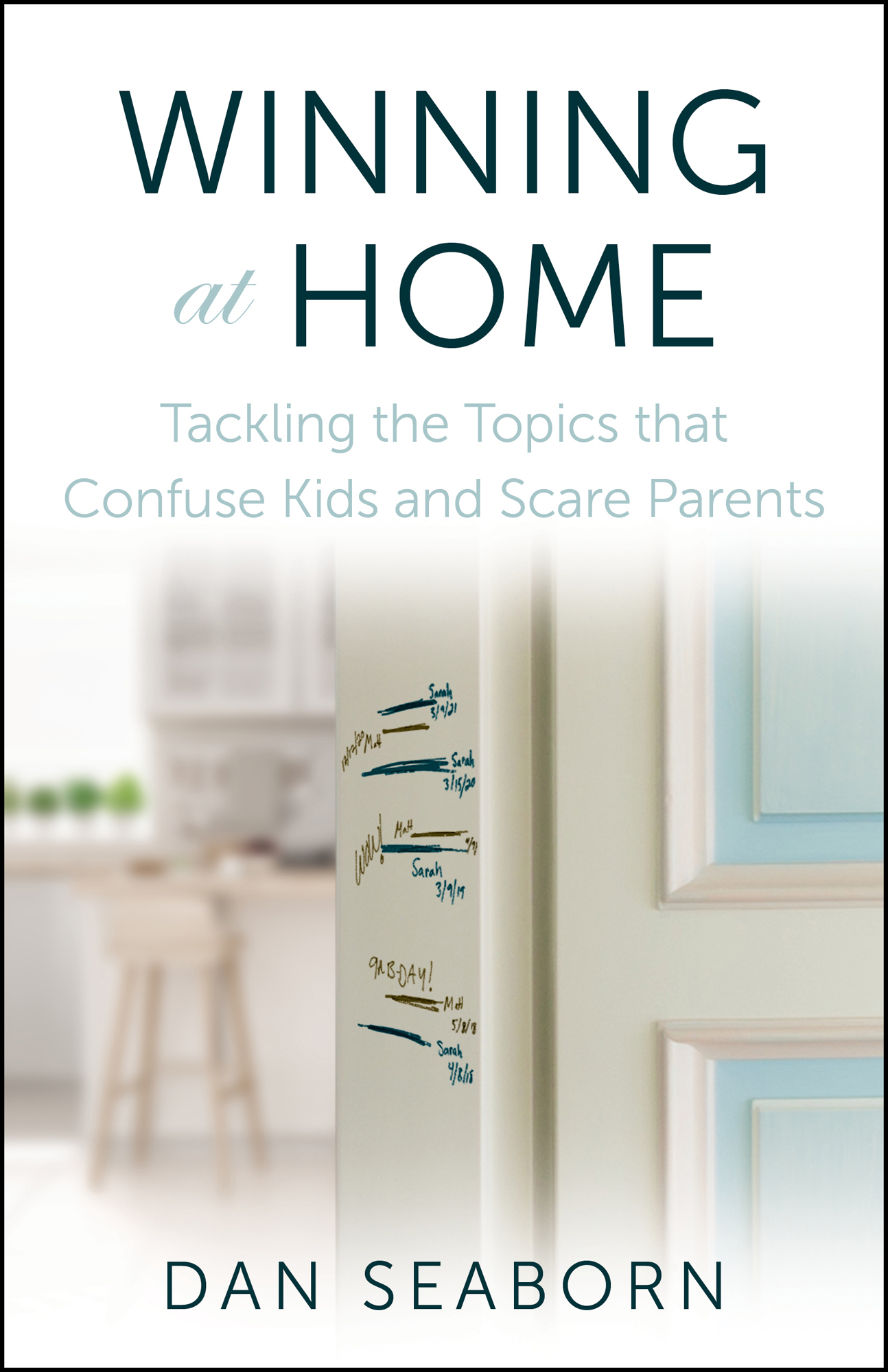Contents
Guide
Winning at Home
Tackling the Topics that Confuse Kids and Scare Parents
Dan Seaborn
Praise for Winning at Home
Its no secret that we are in a battle for the familyour familiesthe haven that is essential to healthy and thriving human beings. Winning the battle of course starts at home with healthy, attuned, godly parents who are courageous, loving, and kind. Parents who are present and have hard, important conversations focused on bringing help and light to the darkness and challenges of this life. In Winning at Home, Dan always communicates a practical biblical truth that is applicable to daily life. I think you will find some amazing insights that are relevant for our times and will speak life into your family
Dr. Tim Clinton, president of the American Association of Christian Counselors, co-host of Family Talk with Dr. James Dobson, and executive director of Liberty University Global Center for Mental Health, Addiction, and Recovery
Dan and his team have written an outstanding book for all of us searching how to win at home. This book covers some crucial, hard topics in a solid biblical way that is easily digestible. Dan is an incredible teacher whom I have spent time with, and I have seen first-hand the results of his efforts. Winning at Home is a must-read. Thank you guys for putting all this down on paper for us to learn from.
Willie Robertson, CEO of Duck Commander
This book is dedicated to my family. I grew up in an imperfect family, and Im a husband, dad, and papa in an imperfect family now. Out of that, were working to learn and grow from our mistakes and also to celebrate our victories. I pray God uses this book to make a difference for other families that are imperfect, just like ours!
INTRODUCTION
M y wife Jane and I have been married for nearly forty years, and we have four kids and seven grandkids. As you can imagine, weve learned a lot along the way! Some of what weve learned came from trying out new things that succeeded. But other lessons came from our missteps and well-intentioned, but wrong, choices. I hope youll be able to gain some wisdom from our highs and lows without having to make the same mistakes we did!
My life in ministry started with me serving as a youth pastor and then a family life pastor for about a decade. After working full-time in a church during that period, I felt God leading me to start Winning At Home in 1995, and I have been leading the ministry since then. What started out as me traveling and speaking at churches, companies, and nonprofit organizations has now grown into a multisite ministry that offers speakers, counselors, and coaches to people at all ages and stages of family development and also produces resources and events geared toward helping them lead Christ-centered homes.
In this book, I will partner with several of the credentialed counselors, coaches, and pastors who work with me here at the ministry; they will each contribute to chapters that focus on their specific areas of training and experience. Together, well address many of the challenging topics that youre facing as you navigate raising children and teens in a world that doesnt always share our values.
This book will address some complex issues that you may not hear addressed in faith-based settings very often. We hope and pray that this will help parents with kids of all ages to handle challenging situations in ways that honor God.
Dan Seaborn
CHAPTER 1 PARENTING FROM TRUE IDENTITY
Dan Seaborn
W ere starting with identity in Chapter 1 because this lies at the core of how we parent. The following chapters will all focus heavily on your children, but this chapter will primarily focus on youbecause if we arent intentional about being aware of our own values and priorities, we very likely will unintentionally pass some things along to our kids that we dont want them to inherit. In other words, if we dont understand ourselves as fully as possible, we will probably project our insecurities, triggers, frustrations, and unmet expectations of ourselves onto our kids. None of us mean to do this, and none of us want to do it. But thats the tricky thing about values and priorities. We will pass them on, because we will naturally punish or celebrate our kids disproportionally in the areas where we have strong opinions.
Think about the parent who is a little too into their childs sports team. Or the parent who pushes pageants or certain professions onto their kids. If we as parents arent okay with ourselves and dont know where our value comes from, we can fall into a pattern of trying to live vicariously through our children, hoping they will accomplish some of the things that we failed to accomplish when we were younger. On the face of it, that might not seem like a bad thing. But all you have to do is go online and search for sports dad or stage mother to find stories and experiences of people who got too carried away and tried to achieve some of the things they hadnt in their own lives through their children. Thats not to say that if you dont figure out your own identity, youll definitely find yourself going that far. But if you arent reasonably secure in your own identity, then you are likely to project some of your hopes and dreams onto your children in unhealthy ways.
This part of the discussion is a nuanced one though, because its absolutely possible to encourage your kids to do their best and to excel in sports or school or work without it coming from an unhealthy place in your own heart. In fact, encouraging them to excel at those activities is a good thing. Thats what makes this so hard. You have to do the interior work yourself to figure out what your motivations are and where you might be encouraging your kids in a certain direction not because its best for them, but in an attempt to make up for your own feelings of inadequacy or lack of success. This can show up in encouraging them to date a lot, to be fashionable, to drive the right car, or any number of things. But this chapter will be less about the specific ways this can play out negatively for your kids and more about how to find security and stability in your own identity.
It Starts with You
Much of our culture is driven by status or achievement. You may know this by the phrase keeping up with the Joneses, or the more recent idea of conspicuous consumptionbuying things that are expensive mostly due to the fact that theyre expensive. Of course, some people just really like rare sneakers or expensive watches or fancy cars or designer handbags, but a good chunk of the people who are using those things are (at least partly) doing so because they are status symbols. Its a simple way to alert anybody else who is in the know that you know about a specific item, and that you have the ability to pay for it.
Or maybe your experience with an achievement-driven approach to life is that youve spoken to people who already make enough money to live comfortably and theyre talking about wanting a promotion. When you ask why, they dont really have a reason other than because its the next rung on the ladder. If we dont check those attitudes in ourselves, we will be approaching life, and parenting, with the underlying belief that getting to that next level or buying that next expensive thing will bring us some kind of satisfaction. We dont really say those things out loud, and I think thats partly because we know how silly it would sound. We know that every previous achievement or purchase was exciting for a short time, but then the newness wore off. New promotions come with new headaches. New cars get dirty or scratched. Expensive clothes require special care to the point that its a little risky to actually wear them outside the house. New homes lose their lustereven if you build a brand-new one!



